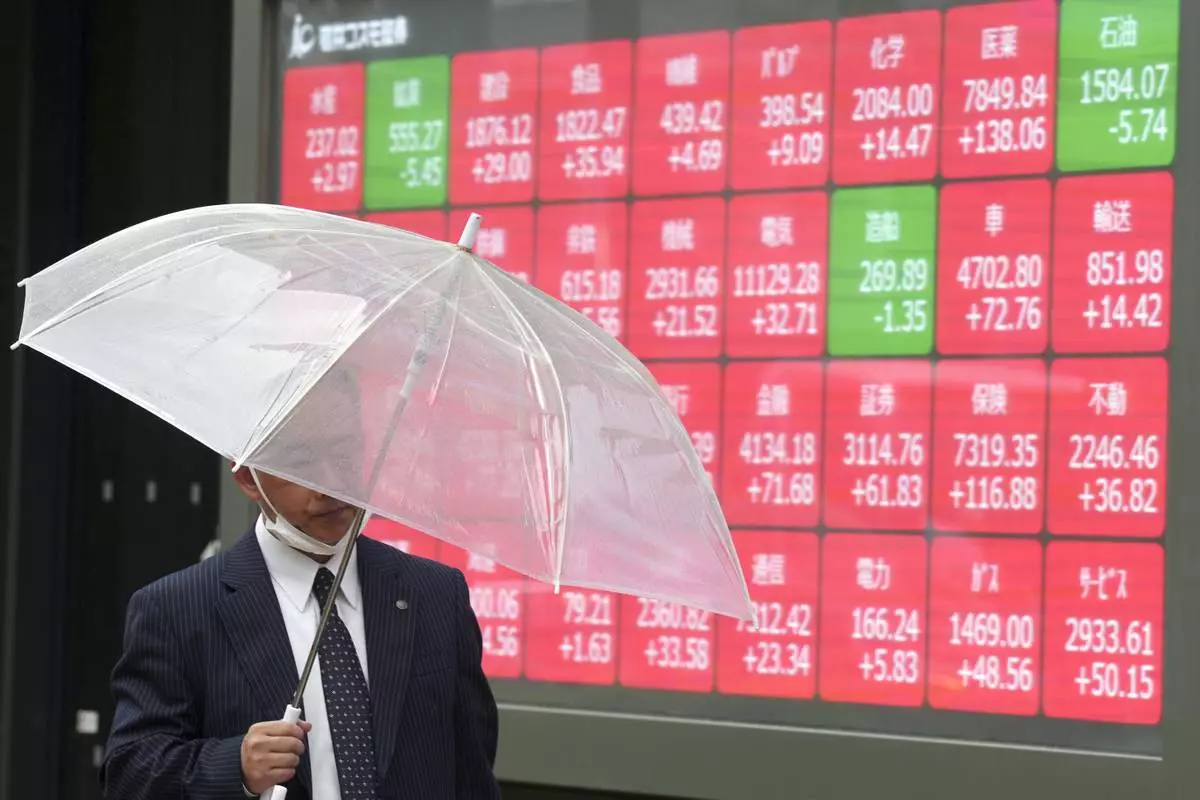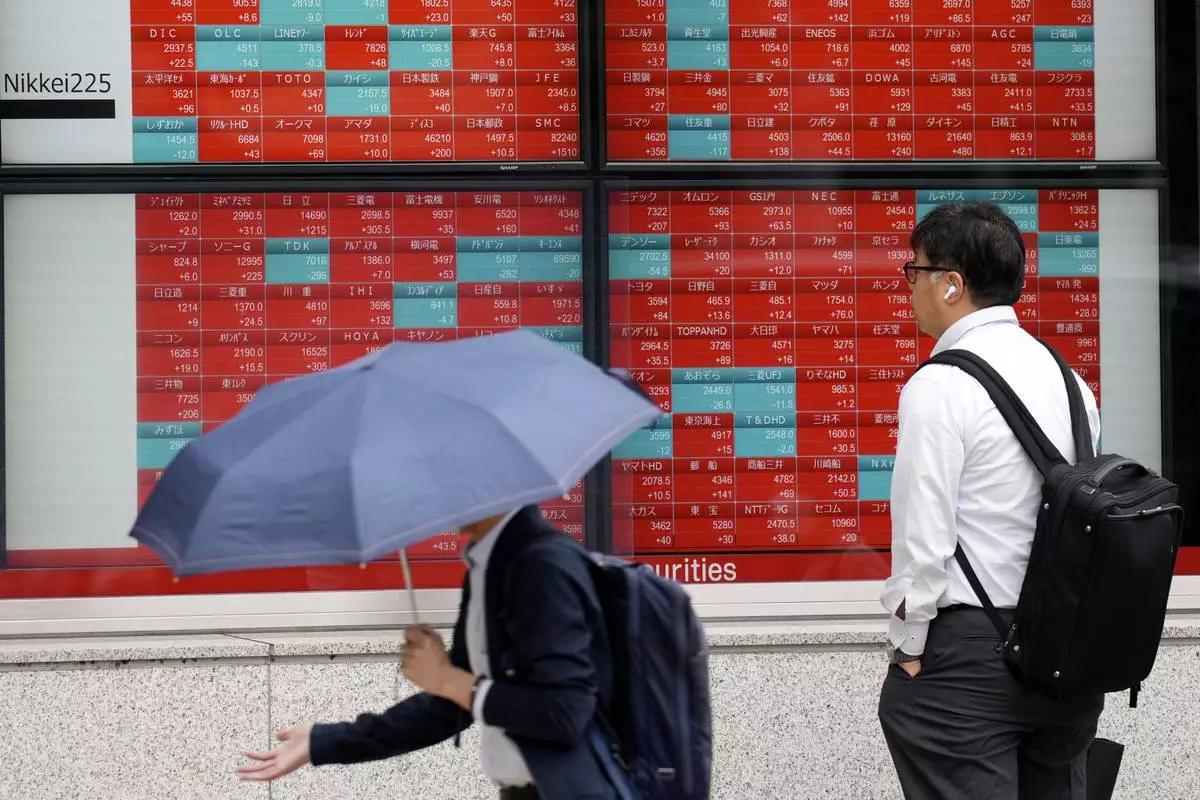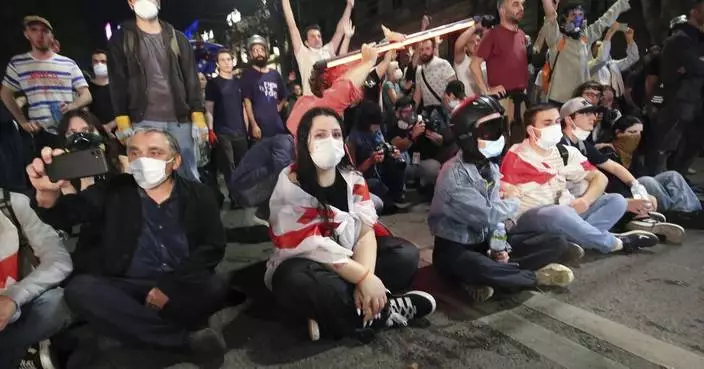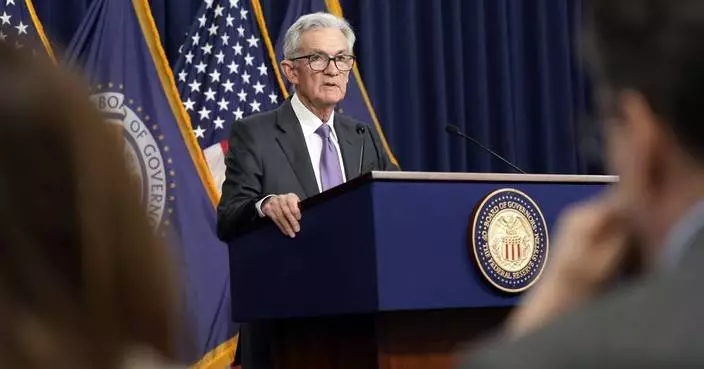BEIRUT (AP) — Lebanon’s caretaker interior minister said Tuesday that this week's slaying of a local politician by what authorities say was a gang of Syrian nationals signals the need to restrict the number of refugees entering the country from neighboring Syria.
Bassam Mawlawi also urged Lebanese to show restraint amid flaring tensions over the slaying of Pascale Suleiman of the Christian nationalist Lebanese Forces party, which has prompted anti-Syrian violence and worsened political tensions among deeply divided Lebanese. Lebanese military officials have said the slaying in northern Lebanon was part of a robbery, but Suleiman’s party suspects political motives.
The tiny Mediterranean country of over 6 million people, including refugees, hosts what the U.N. refugee agency says are nearly 785,000 U.N.-registered Syrian refugees, of which 90% rely on aid to survive. Lebanese officials estimate the actual number could be as high as 1.5 or 2 million.
“We are seeing more crimes committed by Syrians,” Mawlawi said at a news conference following a meeting with security and military officials, adding that some 35% of detainees in Lebanon’s prisons are Syrian nationals.
“The Syrian presence in Lebanon must be limited, and we emphasized to the security forces of the need to strictly enforce Lebanese laws on displaced Syrians.”
Videos have circulated of angry Lebanese beating Syrians on the streets and destroying cars with Syrian license plates in different parts of the country following Suleiman's disappearance Sunday and the discovery of his body on Monday. The death has also exacerbated political and sectarian strife among Lebanon’s divided political groups.
“I call on the Lebanese to be rational, and not to be drawn into reactions and incidents that harm security,” Mawlawi said, echoing a statement from Prime Minister Najib Mikati’s office urging restraint.
The Lebanese Forces is the most outspoken opponent of the Islamic militant group Hezbollah, and many partisans and allies were quick to accuse the Iran-backed group of being involved in the attack on Suleiman. Hezbollah’s opponents are critical of the group’s ongoing clashes with the Israeli military after the beginning of the Israel-Hamas war in the Gaza Strip that have sparked fears of war spilling over into Lebanon.
Lebanon's military said late Monday that Suleiman was killed when a gang of Syrian nationals tried to steal his car. But the Lebanese Forces have cast doubt on those findings, saying they believe it was a political assassination.
Hezbollah leader Hassan Nasrallah slammed the Lebanese Forces party and its allies for what he said were baseless accusations and dangerous sectarian rhetoric.
Three judicial officials told The Associated Press that three apprehended Syrian nationals, one woman and two men, have told authorities that they worked for a theft gang whose leader was in Syria.
Suleiman resisted the theft of his car and the assailants hit him several times with the back of a pistol before throwing him into the trunk of the car where he is believed to have suffocated, the officials said. The body was taken into Syria near northeastern Lebanon, and returned to Lebanon on Tuesday.
The officials all spoke on condition of anonymity because they were not authorized to speak to journalists.

FILE - Lebanese Interior Minister Bassam Mawlawi, speaks during a press conference at the interior ministry in Beirut, Lebanon, on May 16, 2022. Lebanon’s caretaker interior minister says this week’s slaying of a local politician by what authorities say was a gang of Syrian nationals signals the need to restrict the number of refugees entering the country from neighboring Syria. (AP Photo/Hassan Ammar, File)
NEW YORK (AP) — U.S. stocks swung to a mixed finish on Wednesday after the head of the Federal Reserve said the cuts to interest rates that Wall Street craves so much are still likely, even if they're delayed because of stubbornly high inflation.
The S&P 500 fell 17.30 points, or 0.3%, to 5,018.39 after the Fed held its main interest rate at its highest level since 2001, just as markets expected. The index had rallied as much as 1.2% in the afternoon before giving up all the gains at the end of trading.
The Dow Jones Industrial Average rose 87.37, or 0.2%, to 37,903.29, and the Nasdaq composite lost 52.34, or 0.3%, to 15,605.48.
On the downside for financial markets, Federal Reserve Chair Jerome Powell said out loud the fear that's recently sent stock prices lower and erased traders' hopes for imminent cuts to interest rates: “In recent months, inflation has shown a lack of further progress toward our 2% objective.” He also said that it will likely take "longer than previously expected” to get confident enough to cut rates, a move that would ease pressure on the economy and investment prices.
At the same time, though, Powell calmed a fear swirling in the market, that inflation has remained so high that additional hikes to rates may be necessary.
“I think it’s unlikely that the next policy rate move will be a hike,” he said.
The Fed also offered financial markets some assistance by saying it would slow the pace of how much it’s shrinking its holdings of Treasurys. Such a move could grease the trading wheels in the financial system, offering stability in the bond market. Powell said the Fed did it to reduce “risk of money markets showing stress.”
Yields eased in the bond market following the move and Powell's comments.
The yield on the 10-year Treasury fell to 4.63% from 4.65% just before the announcement, easing the pressure on the stock market. The yield on the two-year Treasury yield, which more closely tracks expectations for the Fed, dropped to 4.95% from 5.04% late Tuesday.
Traders themselves had already downshifted their expectations for rate cuts this year to one or two, if any, after coming into the year forecasting six or more. That's because they saw the same string of reports as the Fed, which showed inflation remaining stubbornly higher than forecast this year.
Powell had already recently hinted rates may stay high for a while. That was a disappointment for Wall Street after the Fed earlier had indicated it was penciling in three cuts to rates during 2024.
Powell's comments Wednesday were largely seen as less harsh than feared.
“Yet, before markets get overly excited, it’s worth remembering that the Fed is responding to the unfolding economic data, just as we all are,” according to Seema Shah, chief global strategist at Principal Asset Management. "The next few months of data are pivotal for the Fed path."
Without the benefit of easing rates, companies will need to deliver better profits to support their stock prices.
CVS Health tumbled 16.8% after reporting weaker results for the latest quarter than analysts expected. It said it’s been hurt by increased costs at its Medicare Advantage business, and it cut its forecast for profit over the full year.
Starbucks dropped 15.9% after falling short of expectations for both profit and revenue in the latest quarter. Sales trends weakened at its stores outside the United States in particular, and it cut its full-year forecasts for profit and revenue.
Super Micro Computer, which has been one of Wall Street’s hottest stars, gave back 14% despite topping expectations for profit. The company, which sells server and storage systems used in AI and other computing, fell shy of analysts’ forecasts for revenue. Expectations had bult up after its stock had already tripled this year amid a broad frenzy on Wall Street around artificial-intelligence technology.
Advanced Micro Devices dropped 8.9% despite reporting profit that matched expectations. Its revenue came in a bit shy of forecasts, as did the midpoint of its forecasted range for revenue in the current quarter.
On the winning side was Amazon, which climbed 2.3% after reporting stronger profit for the latest quarter than analysts expected. The retail behemoth credited reaccelerating growth at its cloud-computing business, in part, as it benefits from demand for AI.
Before the Fed's announcement, stocks and Treasury yields had been moving relatively little following some weaker-than-expected reports on the economy.
One report from the Institute for Supply Management said the U.S. manufacturing sector unexpectedly fell back into contraction last month.
A separate report said U.S. employers were advertising slightly fewer jobs at the end of March than economists expected. The hope on Wall Street has been that a cooldown could help prevent upward pressure on inflation. The downside is that if it weakens too much, a major support for the economy could give out.
Some recent economic reports raised fears about the potential for a stagnating economy combined with high inflation. The Fed doesn’t have great tools to fix such a scenario, called “stagflation.”
But Powell downplayed the risk of that and said inflation is much lower and economic growth is better than the last time stagflation struck in the 1970s and 80s.
“I don’t see the ‘stag’ or the ‘flation,’” he said.
AP Writers Matt Ott and Zimon Zhong contributed.

A banner for cruise operator Viking, marking its initial public offering, hangs on the front of the New York Stock Exchange on Wednesday, May 1, 2024 in New York. (AP Photo/Peter Morgan)

FILE - A person walks in front of an electronic stock board showing Japan's Nikkei 225 index at a securities firm in Tokyo, on April 22, 2024. Asian stocks fell Wednesday, May 1, 2024 with most of the markets in the region closed for a holiday. Meanwhile, U.S. stocks closed out their worst month since September. (AP Photo/Eugene Hoshiko, File)

FILE- A person looks at an electronic stock board showing Japan's stock prices at a securities firm in Tokyo, on April 30, 2024. Asian stocks fell Wednesday, May 1, 2024 with most of the markets in the region closed for a holiday. Meanwhile, U.S. stocks closed out their worst month since September. (AP Photo/Eugene Hoshiko, File)













